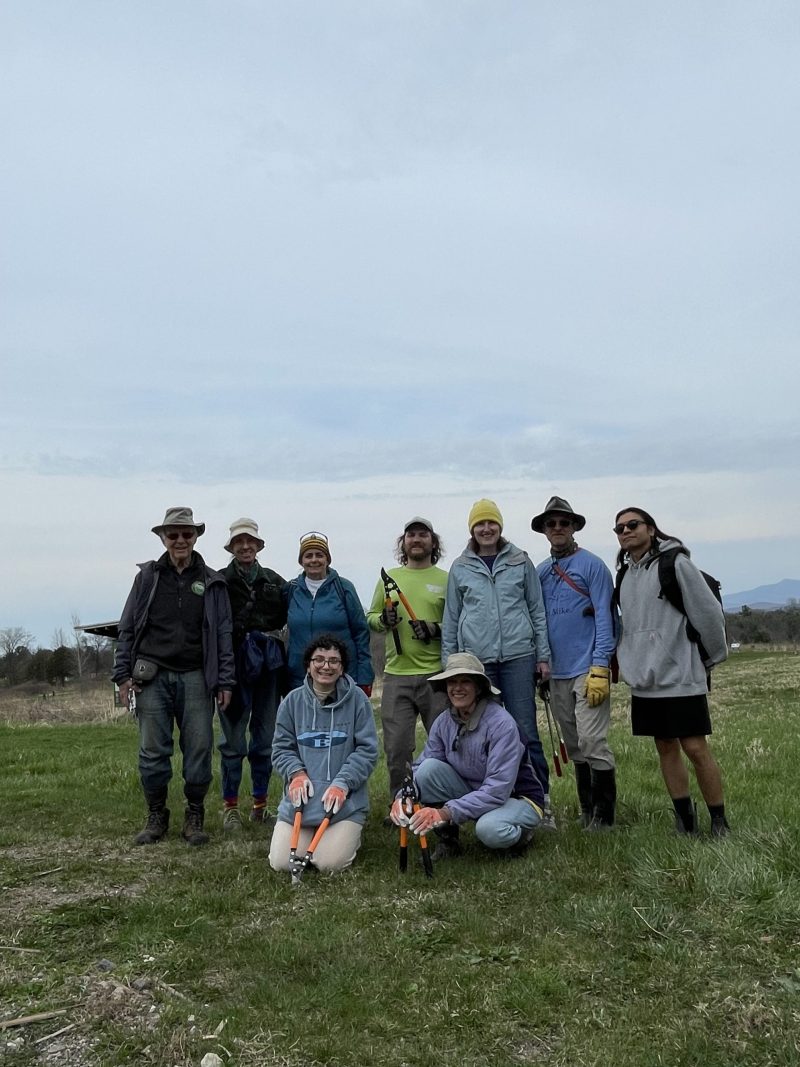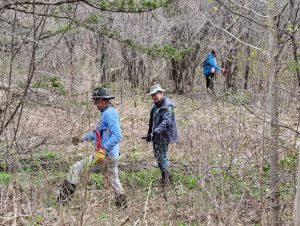
Vermont Pesticides and Poisons Action Network (VT PAPAN) is a network of activists campaigning for tighter regulation of pesticides in the state. Together with Mike Bald, Sylvia Knight co-founded the organization in 2022, drawing on decades of environmental activism and her own research into the substances. “I see this as a human and environmental justice issue,” Knight says, pointing to the risks of heavy pesticide use to human health and biodiversity. The International Agency for Research on Cancer classifies the herbicide glyphosate – widely used in Vermont and across the US – as a probable carcinogen. “We’re losing species, too – these slow disasters are difficult for people to get their heads around,” she says, with pesticides containing per- and polyfluoroalkyl substances (PFAS), which persist in the environment, a key concern for the group. “We’re oriented towards dealing with big, obvious emergencies, not incremental dangers.” To highlight these costs, VT PAPAN holds rallies, creates educational materials, and attends state committee meetings.

VT PAPAN members take part in pesticide-free land management on Earth Day 2025.
Drawing on a pool of activists based in rural and urban areas across Vermont, the network consists of 15 members, with a core of five. Looking ahead, VT PAPAN is focused on securing a ban on pesticides containing PFAS. With the help of scientists at other organizations, Knight has identified 24 pesticides used in Vermont that contain active ingredients meeting the state’s definition of PFAS, she says, leading to concerns that these “forever chemicals” will remain in ecosystems long after use. To spotlight these issues, Knight has testified in front of the environmental committee when bills related to pesticides or PFAS have been considered in Vermont. Additionally, the network has a documentary about migrant dairy farmers exposed to PFAS pesticides in the works. VT PAPAN also highlights the profile of those who have swapped pesticides for natural techniques, through the creation of a directory of properties in the state that manage their land this way, Knight adds. “We’re trying to show it can be done.”